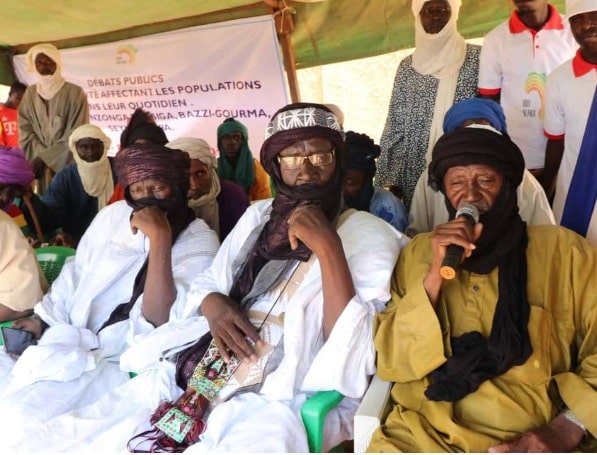

Helping to Break the Cycle of Violence in the Sahel
Over the past several months, the advocacy efforts of our Voices for Peace project helped to break the cycle of violence in Burkina Faso, Mali, and Niger.
A Project of —
Burkina Faso, Mali, Niger, Sahel
The Liptako-Gourma region of the Sahel comprises a cross-border intersection of Burkina Faso, Mali, and Niger. In 2019, this region experienced greater insecurity than before, resulting in heavy human loss and massive displacement of more than 485,000 people in Burkina Faso and 165,000 in Mali.
Despite the three governments’ efforts to provide security via reinforced military activity, state of emergency laws (especially Niger) and regional cooperation via the Joint Force G5 Sahel, the presence of violent extremist groups has not diminish significantly and even continued to spread in Burkina Faso. The feelings of marginalization towards the State, abandonment, and frustration have been growing against a background of community violence and pressing political and social demands at the national and local levels.
Over the last several months, the advocacy efforts of our Voices for Peace project helped to break the cycle of violence and return some sense of normalcy to herder communities in the region. Thanks to messaging support from partner radio stations and the active involvement of V4P-sponsored coalition groups comprised of community leaders linked via WhatsApp networks, former peace agreements were maintained and the cycle of violence subsided. Cross-border trade between the Fulani, Dawsahak, Iboghilitane, Idourane, and Imrad communities has resumed and cattle markets have reopened, indicating a level of restored trust. Local coalitions play a watchdog role in managing budding conflicts, and proactively identify any violent extremist actors seeking to disrupt the peace.
Local authorities are more attuned to the need to interact with citizens, conveying information and involving all social groups in decision making whenever possible. Poor governance is often cited as a primary driver of CVE in the region. To that end, V4P has sponsored radio productions, public debates, and coalition meetings that have created a common front among governing authorities and civil society leaders in the fight against violent extremism. As citizens are more linked up and empowered than ever before, they have successfully lobbied authorities about policies to reduce marginalization, modify restrictions on the States of Emergency, and promote conflict resolution strategies for farmer-pastoralist conflicts. As results of citizen-led advocacy compile, and leaders see the value of inclusion in repelling violent extremist narratives, a positive feedback loop is created that reinforces and encourages further collaboration.